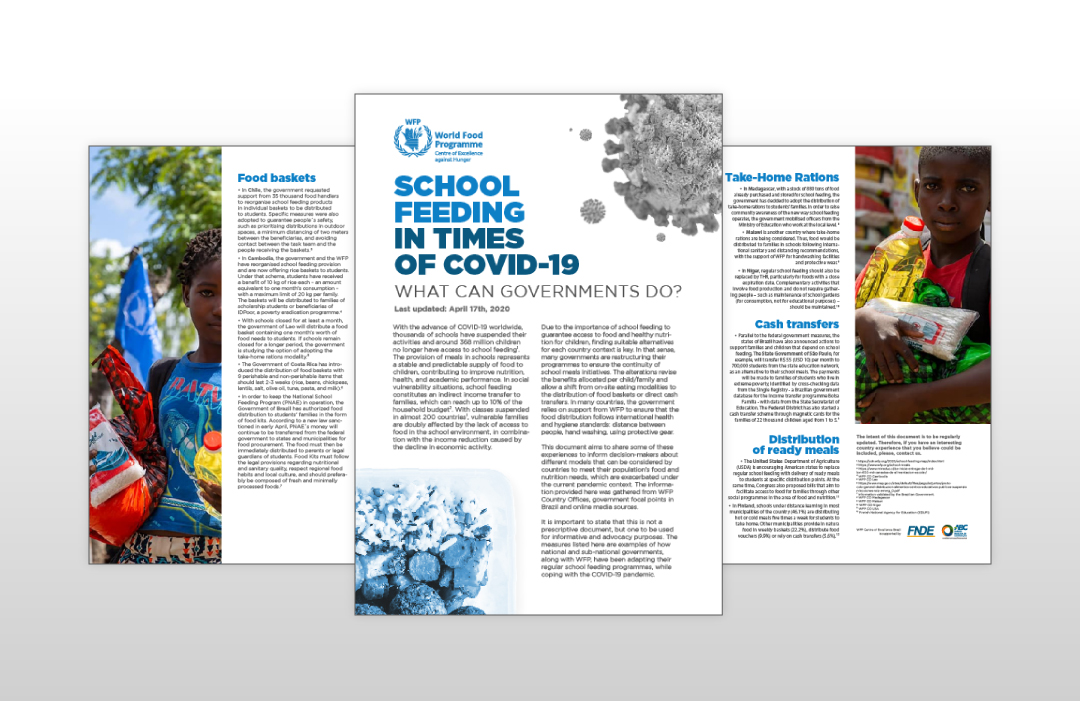New publication produced by the WFP Centre of Excellence against Hunger presents changes adopted by some countries in order to ensure the continuity of school feeding initiatives

With the advance of COVID-19 worldwide, thousands of schools have suspended their activities and around 368 million children no longer have access to school meals. The provision of meals in schools represents a stable and predictable supply of food to children, contributing to improve nutrition, health, and academic performance. In order to ensure the continuity of school meals initiatives, many governments are restructuring their programmes. The changes include the revision of benefits allocated per child/family and allow a shift from on-site eating modalities to the distribution of food baskets or direct cash transfers.
This new publication by the Centre of Excellence presents some of these experiences to inform decision-makers about different models that can be considered by countries to meet their population’s food and nutrition needs, which are exacerbated under the current pandemic context.
Download the publication document here
(Last updated on 17/04/2020)





